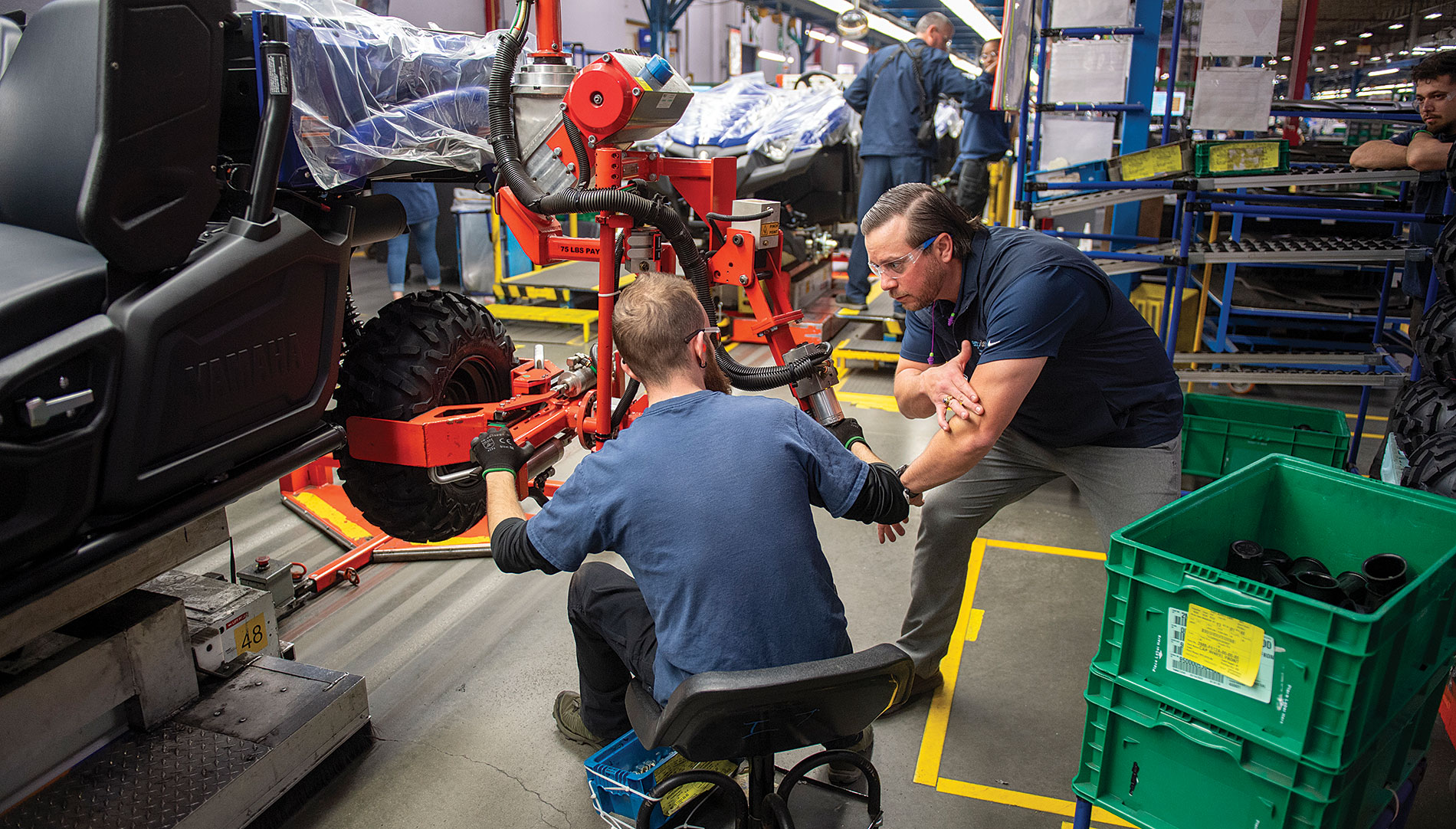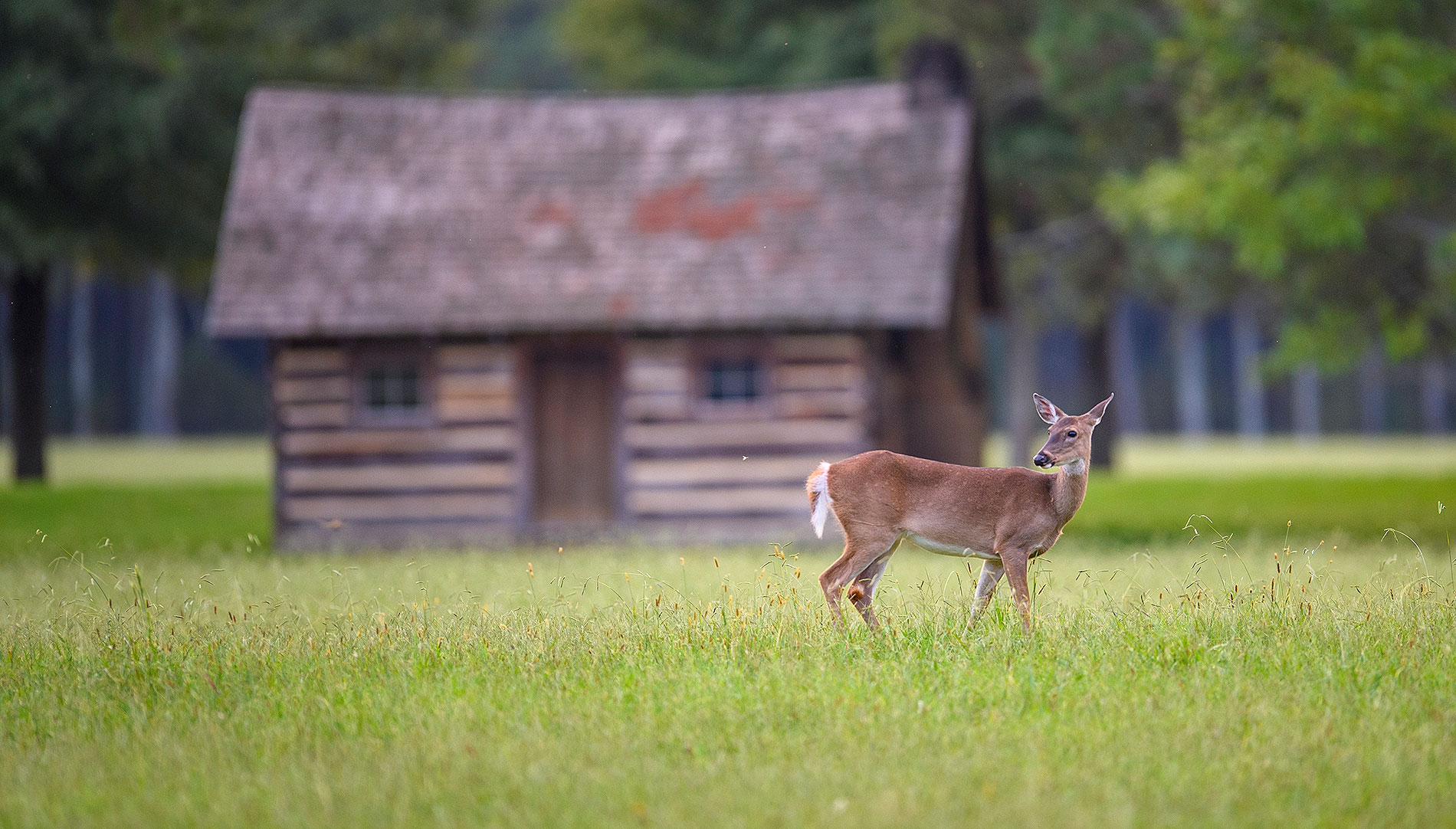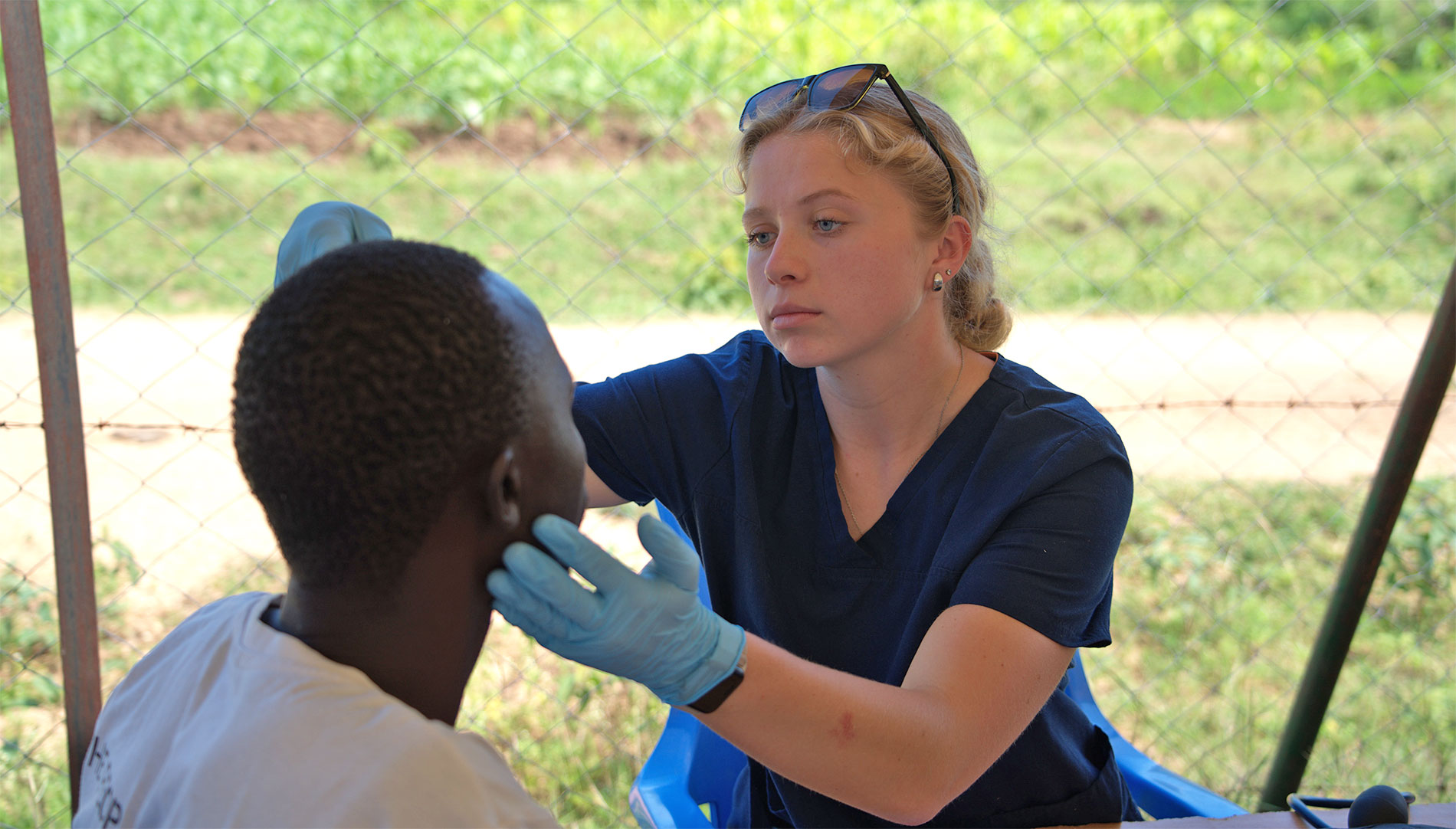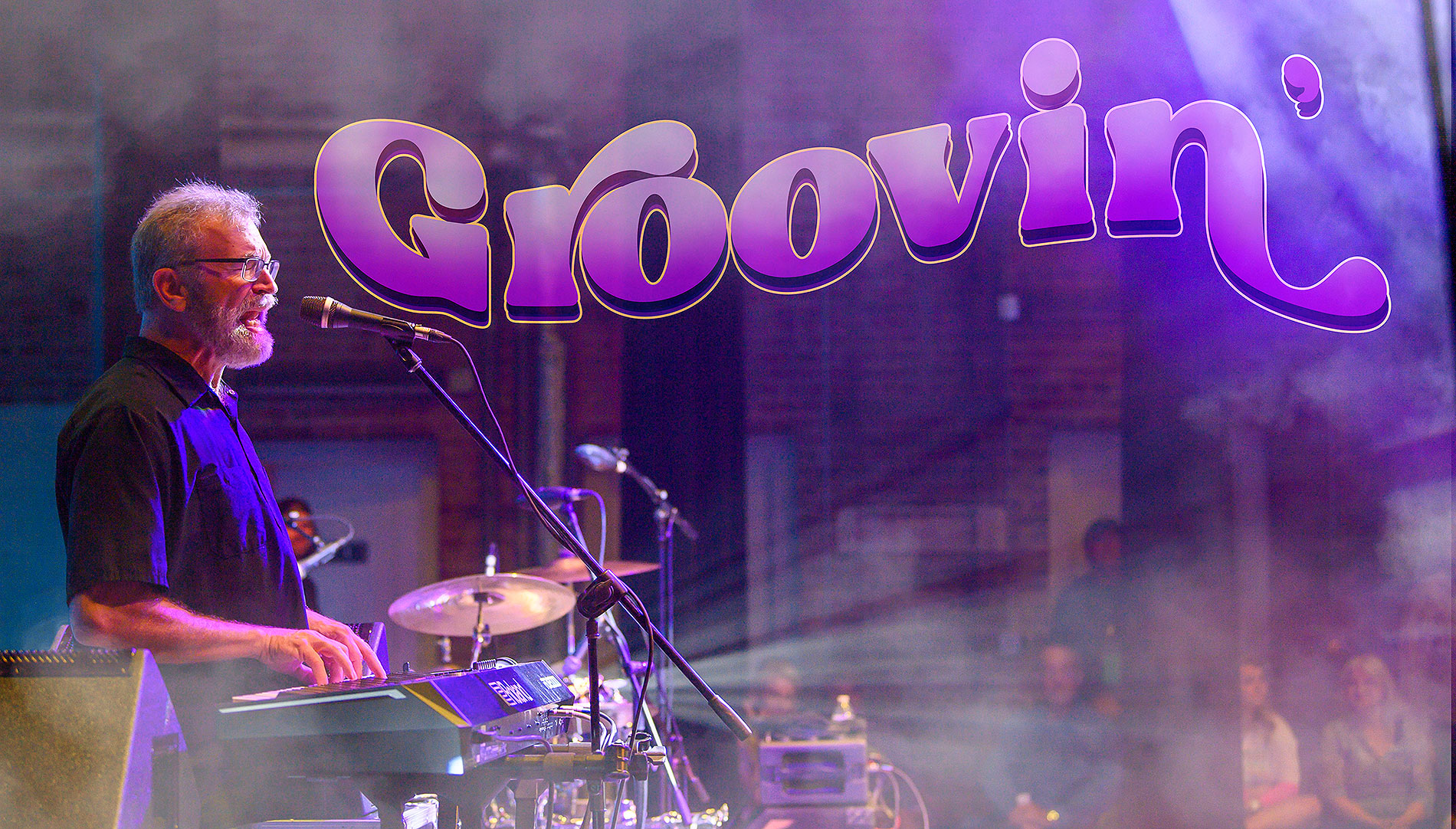STORY BY Rick Woodall
Photography by Brant Sanderlin
What do Gulfstream pilots, Harvard neurosurgeons and Delta baggage handlers have in common? All have been the focus of work done by Brock Anderson (10C) in his role as a professional ergonomist.
While the word itself isn’t the stuff of everyday conversation, ergonomics is absolutely something you think about, particularly when mulling that aching shoulder after hours of repetitive yardwork or rubbing your eyes at the end of a long day in front of a computer.
Such issues stimulate Anderson’s curiosity and ignite his creativity. With expertise spanning exercise science, biomechanics and industrial engineering, he is one of a select group of experts globally who are helping clients enhance productivity while simultaneously easing the physical and mental demands placed on their employees.
What’s in a word?
The first time Anderson heard someone suggest a career in ergonomics, he couldn’t believe his ears.
“I thought she said origami, like paper birds,” Anderson recalled of his conversation with an Auburn University graduate professor. “I’m like, ‘What is ergonomics? This is silly.’”
To that point, Anderson had focused his studies on the human body, first as a kinesiology and exercise science major at Berry, then as a graduate student pursuing a master’s degree in biomechanics and exercise physiology at Auburn.
This emphasis came naturally to someone who had spent the bulk of his life – including four years at Berry – pursuing success in baseball. Now, his insatiable desire to understand how things work demanded fresh challenges.
“I kind of got tired of sports,” Anderson acknowledged. “I just said to myself, ‘What else is out there?’ I’d look up in the sky and see these airplanes and think, ‘How were they made?’ Or I’d look out and see this car and wonder, ‘How did this get here?’”
Ergonomics provided the ideal outlet for indulging such curiosity. Even better, it complemented his knowledge of human performance in ways he’d never imagined.
“Ergonomics is a mix of both fitness and engineering,” Anderson explained. “It is totally focused on making sure that human capability, either mentally or physically, is able to meet the demands of the job.”
Inspired by the possibilities, Anderson shifted his focus, leaning hard into study habits forged at Berry to meet the challenge of his new coursework. He was within sight of a Ph.D. in industrial systems and engineering with a concentration in occupational safety and ergonomics when he got his first big career break, leading to six years of on-the-job learning with Gulfstream Aerospace and Coca-Cola. Unexpected adversity then spurred his next leap forward, this time as founder of one of the nation’s few ergonomics consulting firms.
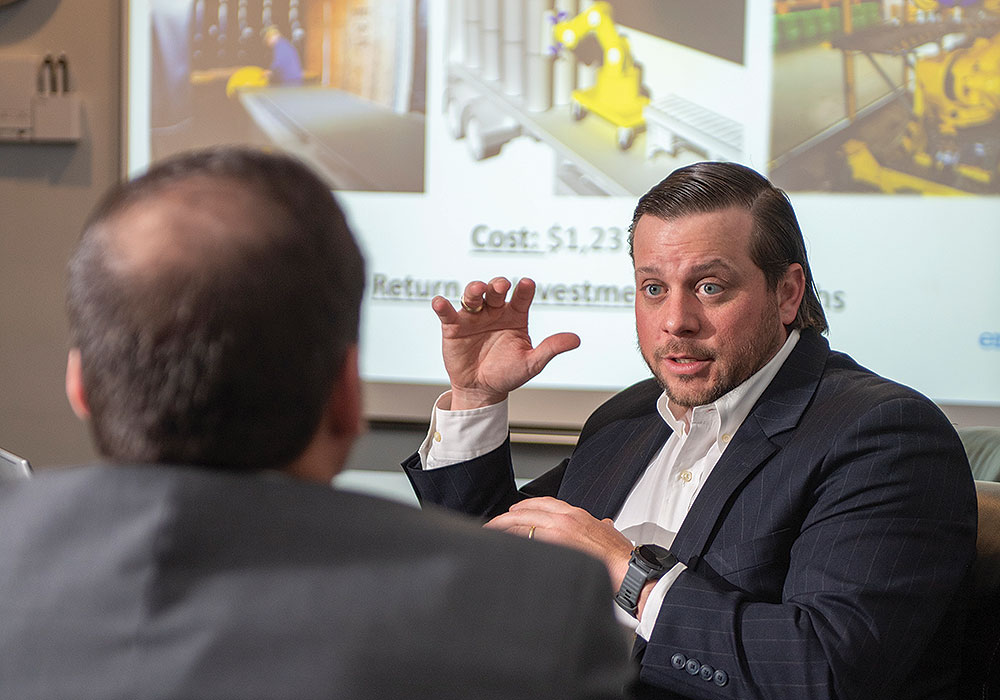
Industry leader
Springing from dry-erase scribblings on the windows of Anderson’s back deck, Ergo-ology has grown from a one-man operation in 2018 to four full-time employees and 22 contractors, which he said accounts for upwards of 30% of the certified professional ergonomists currently active in applied consulting roles nationwide.
Boasting nearly 200 active clients – more than half Fortune 500 companies – Anderson’s firm offers a broad array of services ranging from supply-chain analysis and workplace risk assessments to customized engineering solutions and assistance with developing in-house ergonomics programs.
The needs of each client are as unique as the solutions required. The work could be as simple (relatively speaking) as analyzing and improving the physical movements of an assembly-line employee or as complex as prototyping tools and overhauling processes to fundamentally change the way a job is done.
Sometimes, the focus is more cognitive than physiological, as with the pilots referenced in the introduction. That project – conducted during Anderson’s tenure at Gulfstream – took the form of a sleep study meant to help pinpoint how fatigue negatively impacts awareness. Results guided development of standards for flight schedules based on circadian rhythms (physical, mental and behavioral changes experienced over a 24-hour cycle) for Gulfstream and the Federal Aviation Administration.
Fatigue also was at the heart of Anderson’s work with Harvard neurosurgeons. In that case, he used electrical sensors and a patented algorithm to gain a better understanding of the physical demands of a specific procedure related to Parkinson’s research.
Whether surgeons or factory workers, frontline employees often play an active role in such projects – and not just as test subjects – offering invaluable firsthand perspective Anderson first grew to appreciate while working in-house for Gulfstream and Coca-Cola.
“No matter how technical you think you are, if you ever come across somebody who has been doing a job for many years, it’s a pretty safe bet that they’ve sat there either angry or bored and thought about a really creative way to make that job better,” he related. “My job is to be an outlet for those people.”
Berry foundation
Anderson’s journey toward a career in ergonomics began at Berry, though he never would have guessed it at the time. Baseball was foremost in his mind when choosing a college; he got a lot more.
“Berry taught me how to learn and gave me a passion for education,” he praised. “It truly transformed my priorities and life vision in the four years that I was there.”
Fully expecting to be a star performer on the baseball team, Anderson instead found himself working harder than ever just to maintain a starting position on a roster filled with talent.
“I honestly learned a life lesson,” he admitted, “and that’s the importance of analyzing any situation to find where you can be the biggest value to something that’s bigger than yourself.”
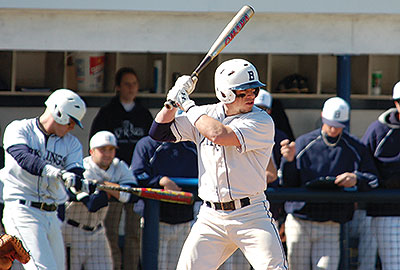
Though cherishing memories made on the diamond – particularly during the Vikings’ 2009 NAIA World Series season – it was elsewhere that Anderson truly shined. In exercise science and kinesiology, he found a major he could be passionate about and a mentor willing to answer ALL his questions: Dr. Angela Baldwin Smith (93c).
“This lady probably was exhausted at the end of teaching, and yet she just continued to go further and further and further to add value,” he marveled. “She genuinely has a passion for educating people, but I think she has a bigger desire to add value to students’ lives.”
With Smith’s support and encouragement, Anderson landed an internship with the Atlanta Falcons the summer before his senior year, then secured a national strength and conditioning certification that helped him gain admission to Auburn for graduate school.
Smith recalled with pride Anderson’s accomplishments as a student laboratory assistant, as well as the volunteer support he provided to campus community members preparing for Berry’s annual half-marathon. She also pointed to the manual for pre-screening athletes and injury testing he developed during his summer with the Falcons.
“Brock was a unique student in that his mind was always spinning with unconventional and creative ideas,” she recounted. “His positive energy and enthusiasm in and out of the classroom were contagious to me and to his peers.”
Stepping Stones
Showing the same grit and determination once exhibited as a baseball player battling back from surgery for one final season at Berry, Anderson has enhanced his knowledge and skill set at every step of the academic and career ladder – often benefiting from mentors like Smith willing to invest in his success.
At Auburn, it was the dean of his graduate program, who went so far as to climb into Anderson’s “big, jacked-up truck” for a drive across town to finalize the community assistantship vital to his admission.
Next came Gulfstream, where Anderson gained valuable insight into corporate culture while flourishing under the guidance of a supervisor who understood the importance of effective communication, critical thinking, conflict management and other so-called “soft skills.”
Once he got to Coca-Cola, Anderson’s skills were infused with cultural understanding due to global responsibilities as a corporate program manager tasked with encouraging adoption of an ergonomics-conscious mindset company-wide. He “learned really quick that leading people and creating purpose is much different in different cultures” while coordinating efforts across five continents.

In 2016, Anderson joined nine other colleagues in earning global recognition from Coke as a “Transformational Leadership Team.” Two years later, corporate reorganization left him unemployed.
Relying on his Christian faith, Anderson did his best to remain upbeat as he considered his next move, with options ranging from a different role with Coke (requiring a move to Iceland!) to another in-house ergonomics position, this time at Amazon.
Encouraged by wife Courtney, Anderson said no to both, choosing instead to strike out on his own. Soon, he was learning sales and marketing on the fly while cobbling together a revenue stream from cold calls, “mom and pop” clients and pro-bono pitches to larger companies.
Anderson recalled with amusement one such pitch, which took the form of a cold call to a local Clorox facility. Once on the phone, he immediately declared, “Hey, you need me!” Their response? “No, we don’t. We’re good.” He then countered, “I’ll come do it for free. If you like it, you can have it.” When they called back afterward to praise his work, Anderson closed the deal: “Well, the next time you’ve got to pay.”
Such persistence has helped him build a formidable list of current and former clients including Chick-fil-A, NASA, US Foods, Google, Disney and Mercedes-Benz, with projects as varied as spacesuits, drive-throughs, assembly lines and amusement park costumes.
Net revenues have grown along with his client base, but more impressive are the savings achieved by clients due to process and safety enhancements resulting from work done by Anderson and his team (topping $56 million last year alone).
Hands on
Though Ergo-ology has grown significantly in a short time, Anderson retains considerable responsibility as founder and chief consultant, spending as many as 130 nights a year away from home. That’s down from 180-plus in the beginning, but still more than the husband and father of three would like.
His duties span boardrooms and assembly lines – often in the same day – as was the case working with Delta Airlines to improve safety and efficiency in baggage handling.
In the morning, Anderson met with leadership team members at Delta headquarters. A few hours later, he donned decidedly different attire, recalling, “I’m wearing a hard hat, safety vest and steel-toed boots out on the tarmac in Atlanta with some guys who are slinging luggage up onto the conveyors.”
That ability to operate comfortably in both environments helps him to “bridge the gap” between operational efficiency and employee well-being for profit-focused clients. He also does his homework, once informing a would-be client that his analysis revealed monetary losses equal to three months of annual productivity due to easily preventable worker injuries. Needless to say, he got the contract.
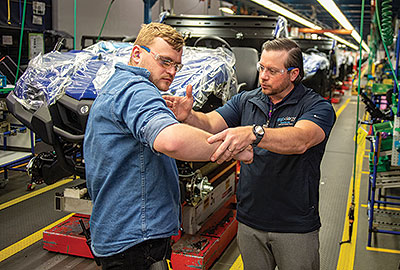
Larger view
While bottom-line success is important to any business, Anderson’s greatest desire for Ergo-ology is to be known for improving the lives of employees, particularly “blue-collar workers who are grinding to just put food on their table.”
That same desire drives Anderson’s volunteer work in places like Taiwan, where he used his knowledge of ergonomics to help improve the speed and efficiency of the walnut harvest. And then there’s Honduras, where with support from crowdfunding donations he was able to assist locals in the design and construction of more than 200 wheelchairs for malnourished children.
He also seeks to further his profession through service to such organizations as the National Safety Council and the Occupational Safety and Health Administration, as well as investing in the next generation through development of a patented certification program offered by Ergo-ology.
In every facet of his work, Anderson takes great satisfaction in building up others, whether it’s the young professionals in the training seminar he conducted in California before returning to Atlanta via “red eye” the day of his Berry magazine interview or the frontline employees whose great ideas he takes such joy in crediting when meeting with executive leadership.
“We all work to get a check and take care of ourselves,” he expressed. “But that’s a means to an end that focuses on you. When that flipped for me and it became more about teaching people and putting them in the limelight, that’s where my passion and expertise started to intersect, and the full potential started to rise.”
Paper birds may not be the focus of Anderson’s work, but his outlook definitely soars.
Baseball and Coca-Cola images contributed by Brock Anderson.
